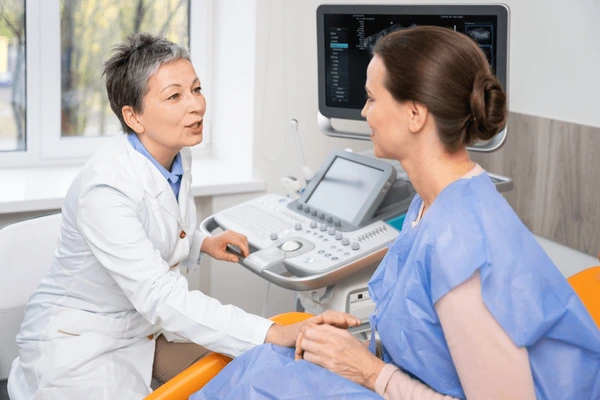Cancer screening is one of the most effective tools in modern healthcare, designed to detect cancer at its earliest stages when treatment is most effective. The process involves various non-invasive and minimally invasive methods tailored to identify potential abnormalities before they develop into more severe conditions. Regular cancer screening in Singapore plays a pivotal role in promoting early detection, empowering individuals to take charge of their health, and ultimately saving lives.
Understanding Cancer Screening: What It Involves
Cancer screening refers to medical tests and examinations designed to detect cancer in individuals who may not yet show symptoms. These tests are carefully crafted to identify changes in the body that might indicate the presence of cancer or pre-cancerous conditions. Some commonly used cancer screening methods include mammograms for breast cancer, Pap smears for cervical cancer, and colonoscopies for colorectal cancer.
Each type of screening targets a specific form of cancer and uses advanced technologies to provide accurate results. For instance, imaging tests such as low-dose CT scans are used to screen for lung cancer in high-risk individuals, while blood tests may detect prostate-specific antigens (PSA) to screen for prostate cancer.
How Cancer Screening Works
Cancer screening procedures vary depending on the type of cancer being screened. Most screenings involve non-invasive or minimally invasive tests that are quick and cause minimal discomfort. For example:
- Mammograms: X-ray imaging of the breasts to detect early signs of breast cancer.
- Pap Smears: Collection of cervical cells to check for abnormalities or HPV infection.
- Colonoscopy: Examination of the colon using a thin, flexible tube with a camera to detect polyps or cancer.
- Blood Tests: Analysis of markers like PSA levels or specific genetic indicators that suggest cancer risk.
Screenings often follow established guidelines based on age, gender, family history, and lifestyle factors. Early detection through these methods can catch cancer before it spreads, improving the chances of successful treatment.
The Importance of Cancer Screening in Singapore
Cancer screening in Singapore is a critical component of preventive healthcare. With an increasing focus on wellness and early intervention, regular screenings are emphasized across healthcare institutions. Singapore has implemented national screening programs like Screen for Life, which offers subsidized screening services for residents.
Detecting cancer in its early stages can significantly improve survival rates. For example, breast cancer detected during a routine mammogram may be treated effectively before it progresses. Similarly, colorectal cancer caught during a colonoscopy often allows for polyp removal before they turn malignant. Such timely interventions underscore why cancer screening in Singapore should not be overlooked.
Key Benefits of Cancer Screening
Cancer screening provides several tangible benefits that contribute to better health outcomes:
-
Early Detection
Early detection allows healthcare providers to manage cancer before symptoms develop. This increases the likelihood of successful treatments and better outcomes.
-
Lower Mortality Rates
By catching cancer early, screening reduces the mortality rates associated with advanced-stage cancer. Early-stage cancers are typically easier and less costly to treat.
-
Improved Quality of Life
Early treatment often leads to less invasive procedures and faster recovery, minimizing the impact on an individual’s quality of life.
-
Empowered Health Management
Screening empowers individuals with valuable information about their health, enabling informed decisions about lifestyle changes or further medical care.
-
Cost-Effective Preventive Care
Regular screening is far more affordable than managing advanced cancer. By preventing late-stage complications, it reduces the financial burden on families and the healthcare system.
What to Remember About Cancer Screening in Singapore
When considering cancer screening in Singapore, there are a few essential points to keep in mind:
-
Follow Recommended Guidelines
Different cancers have specific screening recommendations based on age, gender, and risk factors. Adhering to these guidelines ensures optimal outcomes.
-
Discuss Your Risks with a Doctor
A healthcare professional can assess your personal and family medical history to recommend appropriate screening tests.
-
Regular Screening Matters
Many cancers develop over time without noticeable symptoms. Regular screening is vital to catching these conditions early.
-
Choose Accredited Clinics
Select reputable healthcare providers or clinics for screening. Accredited centers offer state-of-the-art equipment and skilled professionals for accurate results.
-
Be Prepared for Follow-Up
An abnormal screening result doesn’t always mean cancer is present. Follow-up tests or additional procedures are often needed to confirm a diagnosis.
How Cancer Screening Saves Lives
Cancer screening is not just a medical procedure; it’s a life-saving practice that can prevent devastating consequences. Early detection leads to earlier intervention, often stopping cancer from spreading or worsening. Studies consistently show that regular screenings lower cancer-related mortality rates and improve long-term survival.
For instance, routine Pap smears have drastically reduced cervical cancer cases worldwide. Similarly, colorectal cancer deaths have dropped significantly due to increased colonoscopy use. These statistics highlight the profound impact of proactive health measures.
Final Thoughts
Cancer screening in Singapore is more than just a recommendation; it’s a vital step toward ensuring a healthier future. With advanced medical technologies and comprehensive healthcare systems, residents have access to effective screening options that can detect cancer in its earliest stages. By prioritizing routine screenings, individuals can significantly reduce their risk of late-stage cancer, improve their quality of life, and save themselves and their loved ones from unnecessary suffering.



Comments are closed.